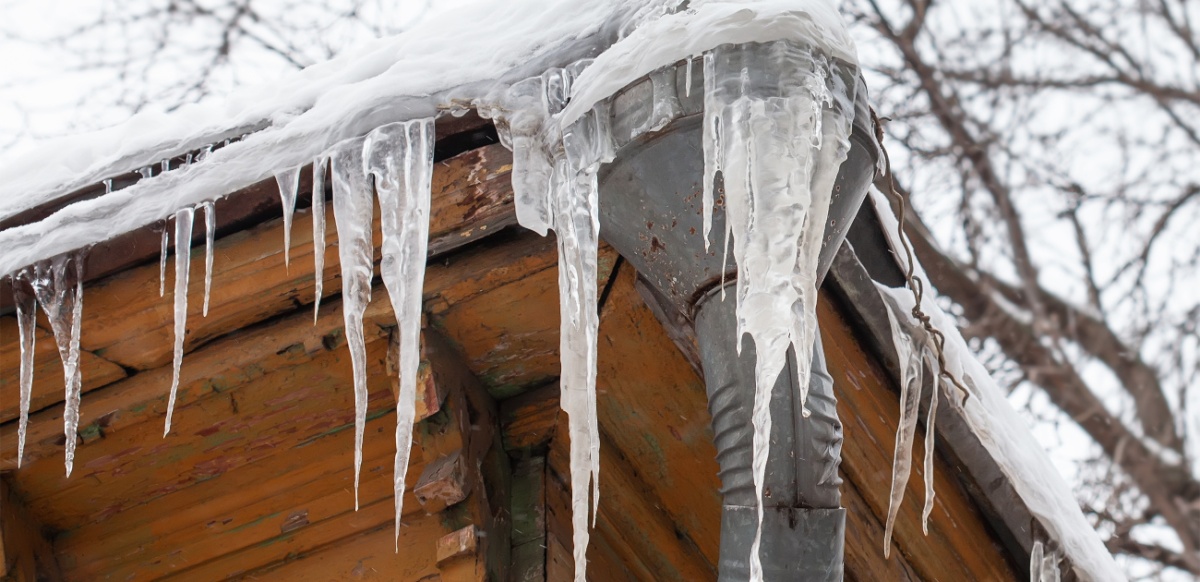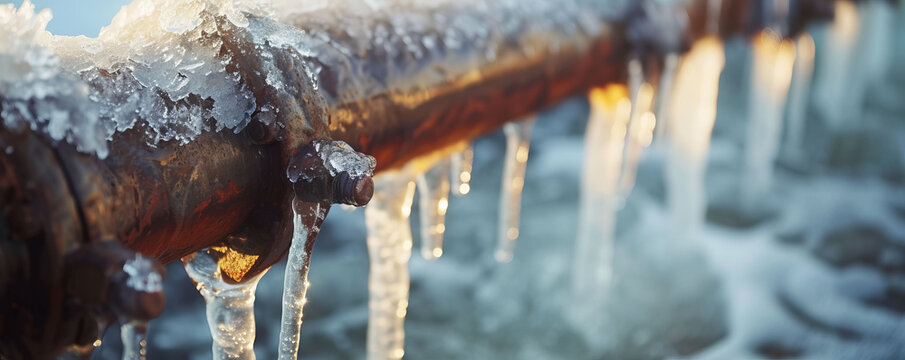The article following next relating to 6 Ways to Prevent Frozen Pipes is relatively captivating. Give it a go and draw your own personal conclusions.

Cold weather can wreak havoc on your pipes, especially by freezing pipes. Below's exactly how to prevent it from taking place and what to do if it does.
Introduction
As temperatures drop, the risk of icy pipelines boosts, potentially leading to costly repairs and water damage. Recognizing just how to avoid frozen pipes is vital for homeowners in chilly climates.
Prevention Tips
Protecting at risk pipelines
Cover pipelines in insulation sleeves or make use of warmth tape to protect them from freezing temperatures. Focus on pipelines in unheated or external locations of the home.
Heating techniques
Keep interior areas appropriately warmed, particularly locations with pipes. Open up cupboard doors to permit cozy air to circulate around pipes under sinks.
Just how to recognize icy pipelines
Search for reduced water flow from faucets, unusual smells or noises from pipes, and visible frost on exposed pipes.
Long-Term Solutions
Architectural adjustments
Consider rerouting pipes far from exterior wall surfaces or unheated locations. Add additional insulation to attic rooms, basements, and crawl spaces.
Upgrading insulation
Buy high-quality insulation for pipes, attic rooms, and wall surfaces. Proper insulation aids keep constant temperatures and lowers the risk of icy pipes.
Protecting Outdoor Pipes
Yard hoses and exterior faucets
Disconnect and drain yard tubes before winter months. Install frost-proof spigots or cover outdoor taps with shielded caps.
Recognizing Icy Pipes
What creates pipelines to freeze?
Pipelines freeze when revealed to temperatures listed below 32 ° F (0 ° C) for prolonged durations. As water inside the pipes ices up, it expands, taxing the pipeline walls and possibly causing them to rupture.
Threats and damages
Frozen pipelines can lead to water system disturbances, building damage, and expensive repair services. Ruptured pipelines can flooding homes and create extensive structural damage.
Signs of Frozen Pipes
Identifying frozen pipes early can stop them from bursting.
What to Do If Your Pipelines Freeze
Immediate activities to take
If you think icy pipelines, maintain taps open up to relieve pressure as the ice thaws. Utilize a hairdryer or towels taken in hot water to thaw pipelines slowly.
Verdict
Protecting against frozen pipes requires proactive procedures and quick actions. By understanding the reasons, indicators, and safety nets, homeowners can shield their plumbing throughout cold weather.
Helpful Tips to Prevent Frozen Pipes this Winter
UNDERSTANDING THE BASICS: WHY PIPES FREEZE AND WHY IT’S A PROBLEM
Water freezing inside pipes is common during the winter months, but understanding why pipes freeze, and the potential problems it can cause is crucial in preventing such incidents. This section will delve into the basics of why pipes freeze and the associated problems that may arise.
THE SCIENCE BEHIND FROZEN PIPES
When water reaches freezing temperatures, it undergoes a physical transformation and solidifies into ice. This expansion of water as it freezes is the primary reason pipes can burst. As the water inside the pipe freezes, it expands, creating immense pressure on the walls. If the pressure becomes too great, the pipe can crack or rupture, leading to leaks and water damage.
FACTORS THAT CONTRIBUTE TO PIPE FREEZING
Low Temperatures: Extremely cold weather, especially below freezing, increases the risk of pipes freezing. Uninsulated or Poorly Insulated Pipes: Pipes located in unheated areas, such as basements, crawl spaces, or attics, are more prone to freezing. Insufficient insulation or lack of insulation altogether exacerbates the problem. Exterior Wall Exposure: Pipes running along exterior walls are susceptible to freezing as they encounter colder temperatures outside. Lack of Heating or Temperature Regulation: Inadequate heating or inconsistent temperature control in your home can contribute to frozen pipes. PROBLEMS CAUSED BY FROZEN PIPES
- Pipe Bursting: As mentioned earlier, the expansion of water as it freezes can cause pipes to burst, resulting in significant water damage.
- Water Damage: When pipes burst, it can lead to flooding and water damage to your property, including walls, ceilings, flooring, and personal belongings.
- Structural Damage: Prolonged exposure to water from burst pipes can compromise the structural integrity of your home, leading to costly repairs.
- Mold and Mildew Growth: Excess moisture from water damage can create a favorable environment for mold and mildew growth, posing health risks to occupants.
- Disrupted Water Supply: Frozen pipes can also result in a complete or partial loss of water supply until the issue is resolved.
WHY CERTAIN PIPES ARE MORE PRONE TO FREEZING
- Location: Pipes located in unheated or poorly insulated areas, such as basements, crawl spaces, attics, or exterior walls, are at higher risk of freezing.
- Exterior Pipes: Outdoor pipes, such as those used for irrigation or exposed plumbing, are particularly vulnerable to freezing as they are directly exposed to the elements.
- Supply Lines: Pipes that carry water from the main water supply into your home, including the main water line, are critical to protect as freezing in these lines can affect your entire plumbing system.
- Underground Pipes: Pipes buried underground, such as those connected to sprinkler systems or outdoor faucets, can be susceptible to freezing if not properly insulated.
https://busybusy.com/blog/helpful-tips-to-prevent-frozen-pipes-this-winter/

Do you enjoy more info about Helpful Tips to Prevent Frozen Pipes this Winter? Put a remark directly below. We'd be glad to hear your thinking about this write up. In hopes that you visit us again in the future. Do you know about somebody else who is fascinated with the niche? Please feel free to share it. I praise you for being here. Come back soon.
Information Here